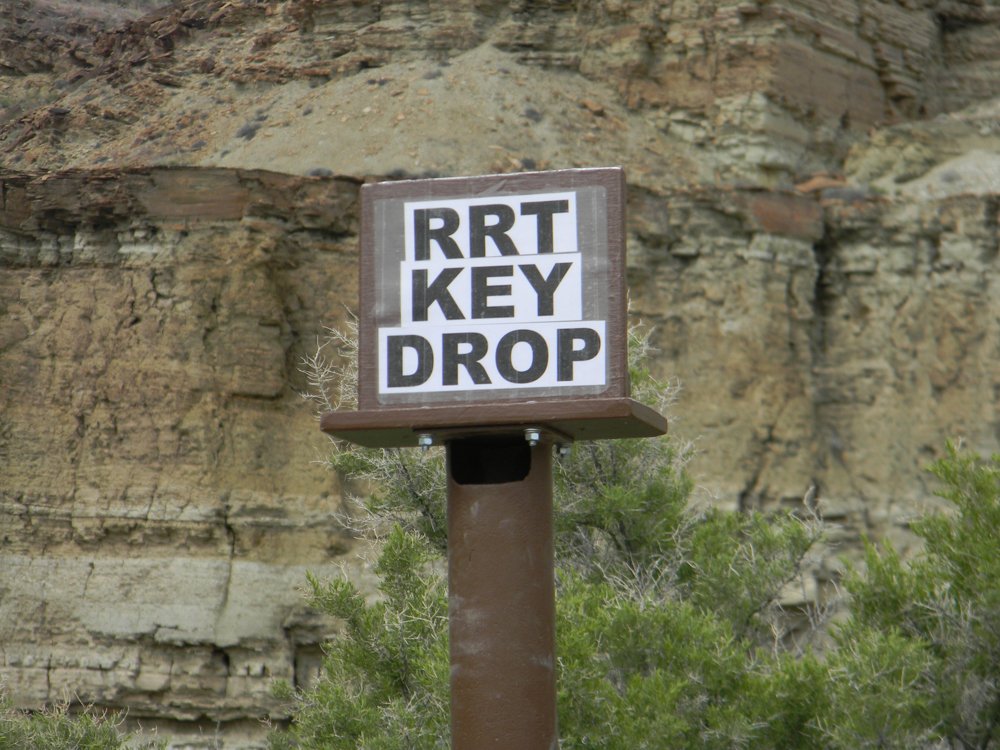Shuttle Contract
Our Hiring Agreement is to be completed by those wanting a shuttle service provided by River Runners’ Transport, Inc. Please print the form, fill it out completely and leave it in the vehicle designated as the “lead.” We require one form per vehicle to be moved.
Your Time is our business
Stop fretting over how to get the cars from the put-in to take-out. Shuttling was our first service - and we're still the largest, most reliable service in the region.
With advance arrangements for keys and payment, you can float worry free. Making the arrangements are very simple, if there are more than one vehicle in the group, designate one person to be the shuttle contact. That person can call the office at 1-435-781-4919. All we will need to know is the description of one of the vehicles that we refer to as the “lead.” We will make arrangements for the lead key and all the others, the payment, and signed hiring agreements will be left inside the lead vehicle and we will discuss what to do with the keys at the take out.

We have installed key drop boxes at Lodore, and Deer Lodge. Arrangements for the keys for vehicles left at other areas will have to be with our office.
We KNow the Territory
Our shuttle drivers are experienced on the roads and know how to handle annoyances such as flats, overheating, and road emergencies. Shuttles are done in convoy. Drivers are required to wear seat belts, drive with their headlights on and notify other drivers of upcoming dangers.
Help us, Help you
Follow these guidelines so that your vehicle is shuttled safely without incident and without unnecessary additional costs:
- Before you leave for your river trip, make sure your vehicle is mechanically sound. Check lights, fluids, belts, and tires. We carry motor oil, transmission fluid, antifreeze, etc. but charge an additional fee to bring fluids to safe levels.
- Make sure you fill your vehicle with enough fuel to drive it to the take out. We will not allow your vehicle to get so low that you won't have enough to make it to the closest gas station, but will charge an additional fee to stop for fuel, in addition to the cost of the fuel and a bill will be left inside the applicable vehicle.
- We do everything possible to avoid flat tires, but given the conditions we encounter, flat tires, especially on "P" rated tires, are not uncommon. If your spare tire (vehicle or trailer) is locked, make sure you leave a key. We attempt to plug tires, use fix-a-flat, or replace damaged tires, and we do charge an additional fee for this service.
- Make sure each vehicle has a spare tire, lug wrench, jack and if appropriate, lug key. Leave us a note informing us of where these tools are stored and make sure your spare tire is inflated and that the jack and tools work. Make sure that you have a full size spare and donut spares are not adequate for the distances and type of travel we encounter.
- If you encounter mechanical problems on your trip to the put-in, make sure you contact us (1-435-781-4919) so that we can be prepared for the problem. Cell phone service can be unreliable depending your provider so sometimes driving away for a few miles from the put-in will improve the service.
- If your group has multiple vehicles, please label the keys with license plate numbers.
- Leave your keys as agreed upon with our office. WE CANNOT MOVE YOUR VEHICLE, OR THOSE IN YOUR GROUP, IF THERE ARE NO KEYS! Or for groups launching at Lodore, Deer Lodge or Sand Wash, follow the instructions for the key drop box (only the lead key is tagged with full name and placed in box at put-in and keys to the other vehicles are left under the driver's mat of the lead vehicle.) For groups not launching at the above sites, the arrangements will be made with our office, in advance.
- Make sure all participants understand what we are going to do with the keys at the take out. The simplest plan is for the owner of the lead vehicle to bring a spare set to their vehicle and the keys to the other vehicles will be locked inside the lead. In the event this will not work, then we will make alternate arrangements, in advance, with the lead vehicle owner. All participants should bring a spare set of keys with them on the river or hide one on their vehicle.
- If you make duplicate keys, make sure they will open the door and start the vehicle. When testing a duplicate key, turn the ignition over and leave the engine running for at least a minute. Many of the newer keys MUST be made by the vehicle's manufacturer so consult your owner's manual for instructions.
- Gratuities are appreciated by the drivers but when leaving a tip, please mark it as such because the drivers will leave any money in the vehicle that is not designated for them as a tip.
- Do not leave loose items or garbage in the open in vehicles or on trailers. Animals will tear into accessible garbage bags and will delay us while we pick up the trash. Make sure that valuables left in the vehicle are secure and out of sight. If we find any valuables in the open, we will place them under the passenger side front seat.
- Leave a clear note of any last minute problem you encounter, including things like "service engine" lights.
- Make sure each vehicle has a current state registration and insurance certificate where we can find them. It is not necessary to leave additional copies of them just make sure they are accessible. In the digital world, some people have their insurance certificate on their phone. In this case, the owner should have their agent email a copy of the certificate and we will print it out and bring it with us when the vehicle is shuttled.
- Entrance fees into Split Mountain on Dinosaur National Monument will be collected by us and a receipt will be taped to the windshield. The fee can be included in the payment to us. However, valid and current National Parks Passes will be accepted in lieu of the park fee and the card should be left inside the vehicle in a conspicuous location. We recommend they be left on the ledge in front of the speed odometer so the driver will see it as soon as they sit in the driver's seat. We will not rummage through the vehicle looking for the card and will bill the owner for any fees not included in the payment.
- In the event that the number of vehicles change once your group has assembled at the put-in, call us at 1-800-930-7238 (leave a voicemail if necessary) so we send the correct number of drivers. We will bill for dropped vehicles that are not accounted for if you don't notify us in advance.
Trailers
Recently trailers have become a major problem on our shuttles. While we inspect hitches, tailgates, safety chains, lights and jacks, the sound construction and maintenance is your responsibility. Following are some guidelines for you to follow:
- We do not charge extra to shuttle trailers, but a trailer must be able to travel safely at normal road speeds. On the roads we travel, an empty trailer can bounce like a basketball – especially short or small trailers.
- Trailers shorter than 8-foot or narrower than the vehicle it is being towed by, are not appropriate for traveling on rough or dirt roads.
- Make sure the trailer is well built. Trailers that use nails, screws and rope in their construction are not sturdy enough to travel safely. Tailgates must be attached firmly and securely. Systems that work for loaded travel on paved roads often do not work well on rough or dirt roads.
- Be certain your trailer hitch and ball are the correct size and that the hitch is attached securely and is appropriate for the weight and size of the trailer. You must have safety chains and trailer lights must work.
- Trailers must have a least one spare tire and it must be attached securely. Check trailer tires and spares for proper inflation and tire tread. If the trailer spare or hitch is locked, be sure you leave us a key. Trailer tires should be at least 6-ply.
- Do not leave garbage or loose items in trailers.
- Trailer bearings should be greased and checked before your trip.
Vehicle breakdowns cost us time, money and ultimately affect our shuttle fees. They will also cost you. When breakdowns or delays cause a number of shuttle drivers to be detained, we will pass that charge onto you to cover those expenses.
